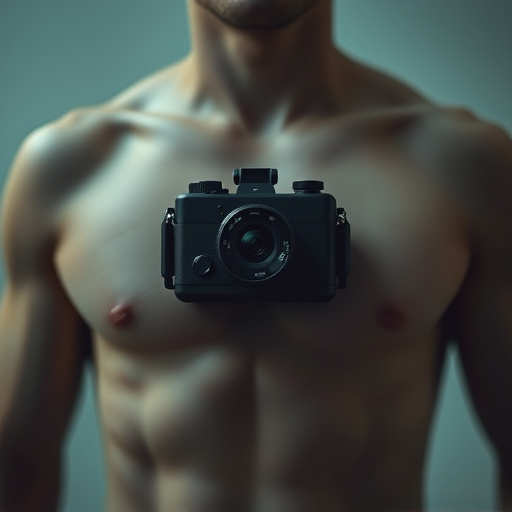Hidden personal body cameras provide individuals with powerful surveillance tools for enhanced safety and security. Offering HD video, night vision, motion detection, and two-way audio, these compact devices capture unaltered evidence for legal protection or personal dispute resolution. The market offers diverse options at varying price points, influenced by features like video quality, storage, wireless connectivity, and water resistance. However, their increasing popularity raises legal and privacy concerns regarding consent laws and potential erosion of privacy. These cameras are ideal for discreetly documenting moments in unfamiliar settings, offering benefits for personal protection, professional needs, and accountability.
Hidden personal body cameras, also known as wearables or covert recording devices, offer discreet protection and peace of mind. In this comprehensive guide, we explore the technology behind these innovative gadgets, unraveling their diverse features and functionalities. We delve into market trends, pricing factors, and legal considerations to help you understand the implications. Furthermore, we highlight the benefits and use cases that make hidden personal body cameras an attractive choice for safety-conscious individuals.
Understanding the Technology: Unveiling the Functionality of Hidden Personal Body Cameras
Hidden personal body cameras, also known as wearable surveillance devices, have emerged as a cutting-edge technology that offers unprecedented personal safety and security. These compact, discreet cameras are designed to be worn on the body, typically clipped to clothing or attached to accessories, allowing users to capture high-quality video and audio evidence in various situations. One of their primary functions is to serve as a deterrent against potential threats by enabling individuals to record interactions with law enforcement, neighbors, or strangers, ensuring transparency and accountability.
The technology behind these devices is sophisticated yet user-friendly. They often feature advanced sensors, such as HD video recording, night vision capabilities, and motion detection, capturing detailed footage even in low-light conditions. Additionally, they can include two-way audio communication, allowing users to interact with others while recording conversations for future reference. With the ability to store vast amounts of data internally or transmit live feeds to smartphones, these cameras provide individuals with a powerful tool for personal protection and legal documentation.
Market Variety and Pricing Factors
The market for hidden personal body cameras is diverse and ever-evolving, with a wide range of options available to suit various needs and budgets. These compact devices, often disguised as everyday accessories like pins, keys, or pens, offer discreet recording capabilities, making them popular among individuals seeking privacy and security. Pricing can vary greatly based on several factors. First, the quality of the camera significantly impacts cost; high-definition video, improved low-light performance, and enhanced audio typically come at a higher price point. Second, storage capacity plays a role; cameras with larger memory cards or internal storage options may charge more for extended recording time. Additionally, features like wireless connectivity, night vision, and water resistance can increase the overall cost.
While basic hidden personal body cameras start from relatively affordable prices, advanced models with enhanced specifications can cost several hundred dollars. Understanding these pricing factors is essential when choosing a device that aligns with your requirements without exceeding your budget.
Legal Considerations and Privacy Concerns
The widespread adoption of hidden personal body cameras, also known as wearable surveillance devices, raises significant legal considerations and privacy concerns. As more individuals opt to record their surroundings for personal or professional reasons, understanding the legal framework governing their use becomes paramount. The legality of recording varies across jurisdictions, with some countries embracing comprehensive regulations while others offer limited guidance. For instance, in regions where consent is a cornerstone of legal recordings, using a hidden body camera without the knowledge or permission of those being recorded could lead to serious legal repercussions.
Privacy advocates argue that the ubiquitous use of these cameras can erode personal privacy, especially if recordings are not properly secured or shared responsibly. The ease with which video footage can be captured and disseminated raises questions about who has access to this intimate visual data and how it might be used. Moreover, there’s a delicate balance between an individual’s right to privacy and the potential benefits of having such cameras as evidence in legal proceedings. Striking this balance is essential to ensure that while hidden personal body cameras can serve as valuable tools for safety and accountability, they do not infringe upon the fundamental rights and freedoms of citizens.
Benefits and Use Cases: Why Individuals Choose Hidden Personal Body Cameras
Hidden personal body cameras offer a discrete yet powerful tool for individuals seeking enhanced safety and security in their daily lives. One of the primary benefits is their ability to capture unaltered, objective footage of events, which can be invaluable in legal, insurance, or personal dispute resolution scenarios. This is particularly relevant in situations where traditional surveillance systems might not be feasible or reliable, such as during outdoor activities, remote work, or when traveling.
These cameras are also popular among individuals who value privacy and discretion. Their small size and customizable activation triggers allow users to capture moments without drawing attention, making them ideal for reporting suspicious activities, documenting encounters that may later need verification, or simply gaining peace of mind in unfamiliar settings. Whether it’s for personal protection, evidence gathering, or professional needs, hidden personal body cameras provide a discreet solution with far-reaching benefits.
